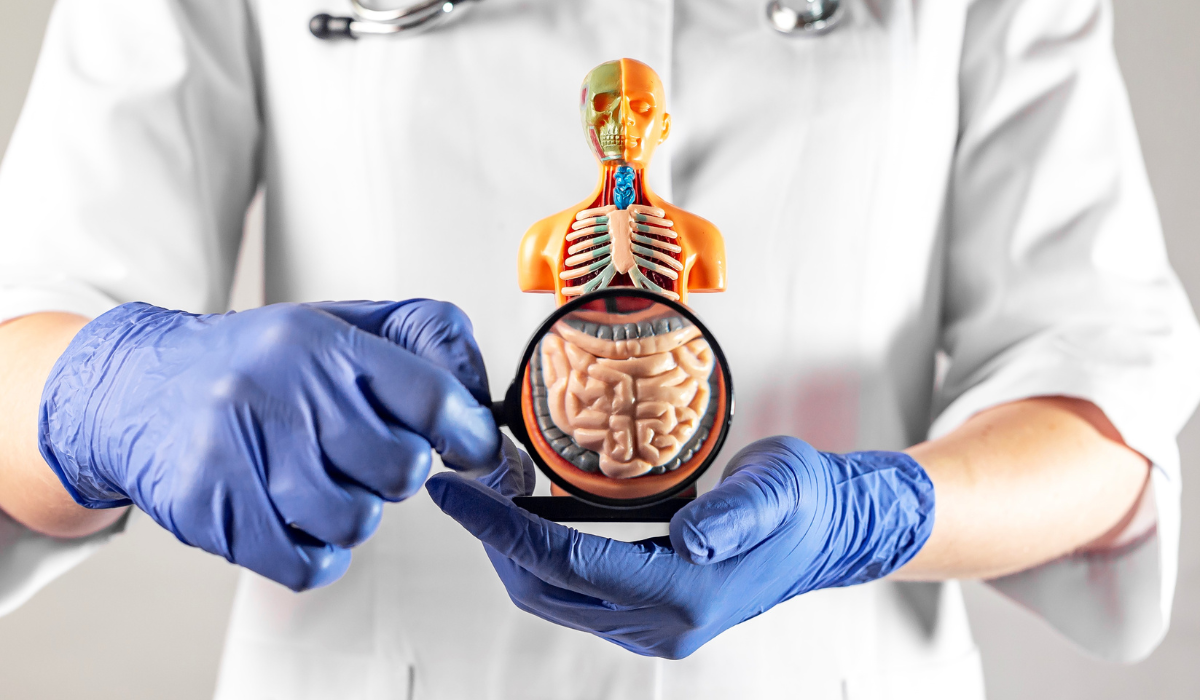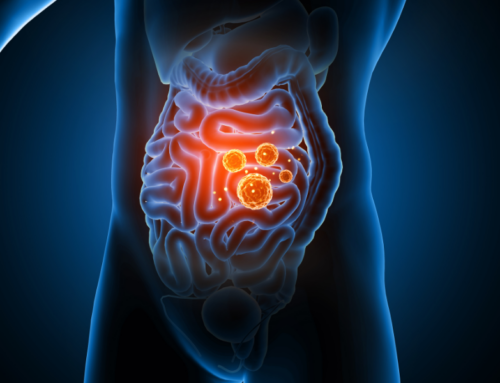
Gut Stool Test 101
What is a gut stool test, and how can it help you?
Maintaining a healthy gut is vital for overall well-being.
Often referred to as “the second brain,” the gut is home to trillions of bacteria, fungi and other microorganisms that make up the gut microbiome. Gut health includes the balance and diversity of these microorganisms—some desired, and others not—along with the integrity of the gut lining, digestion, absorption of nutrients and immune function.
When our gut is in good health, it can positively impact our physical and mental well-being. On the flip side, imbalances can contribute to a number of health issues, including the following:
– Digestive distress/disorders
– Immune dysregulation
– Mood disorders
– Hormone imbalance
Understanding and addressing gut health has become more and more popular, which led to the development of diagnostic tools including gut stool tests. These provide valuable data for health care providers to adequately assess the state of gut health as well as to create a personalized treatment strategy.
What are gut stool tests?
Gut stool tests are diagnostic tools that analyze stool samples to derive data on the state of the gut and its related health. They quantify the presence of bacteria, fungi, viruses and parasites present in the GI tract. They provide insight into intestinal health markers in digestion, immune response, inflammation, intestinal permeability and nutrient deficiencies, metabolic changes and detoxification, as well as the presence of blood.
Gut stool tests provide data for an educated health care professional to analyze and create a personalized treatment plan from. This can empower individuals to optimize their gut health and improve their overall well-being.
What types of stool tests are available?
There are four types of gut stool tests available:
- The Microbiome Analysis – This is a DNA sequence-based test
- Pathogen Detection—PCR tests that look for specific pathogens (bacteria, fungi, viruses, parasites)
- Inflammatory Markers – this test looks for calprotectin, C-reactive protein (CRP) and more
- Digestive Enzyme Analysis – specifically looks for certain enzymes, such as lactase and/or pancreatic enzymes
Some of these assessments are combined in tests.

What are the benefits of doing a stool test?
There are several benefits to undergoing a stool test. Because our gut is tied so closely to our health, identifying any “problems” can aid in providing a plan that can help us feel better in more ways than just GI issues.
That said, stool tests can aid in the early detection of gastrointestinal disorders to include IBD, IBS or infections caused by undesirable bacteria, viruses or parasites. Early detection of these conditions can lead to prompt treatment, with management strategies being implemented, potentially preventing further complications.
Secondly, stool tests can offer personalized treatment and dietary recommendations based on individual results. They can help identify specific dietary intolerances, such as lactose or gluten intolerance, enabling individuals to make targeted modifications for symptom relief.
Lastly, monitoring gut health improvements over time is possible with repeat stool tests, allowing individuals to track the effectiveness of interventions and adjust their approach accordingly.
How are stool tests interpreted?
Stool tests are interpreted by analyzing various markers and patterns present in the collected sample. These markers can include the composition and diversity of the gut microbiome, the presence of specific pathogens or parasites, levels of inflammation markers such as calprotectin, and the activity of digestive enzymes.
Interpretation of stool test results involves comparing the findings with established reference ranges or profiles to identify any deviations or abnormalities. Healthcare professionals, such as gastroenterologists or functional medicine practitioners, utilize their expertise to analyze and interpret the results in the context of an individual’s symptoms, medical history, and other relevant factors. The interpretation process aims to identify potential underlying causes of gastrointestinal issues, assess the overall health of the gut, and guide appropriate treatment strategies tailored to the individual’s needs.

How can you improve sub-optimal findings in a stool test?
Once your healthcare provider has assessed the findings from your stool test, they can derive a personalized plan to bring your gut health back to an optimal state.
Dietary modifications and lifestyle changes may be part of the protocol. This may include removing potential inflammatory foods such as gluten, dairy, alcohol, etc. Sometimes these suggested changes in diet will be temporary, and other times it will be determined (generally based on your provider’s input as well as how you feel with removing the potential culprits) that it’s beneficial to permanently remove them.
Lifestyle changes may encompass chewing food adequately (longer), adjusting hydration and incorporating mindful eating practices. Additionally, sleep, stress management and physical activity may need to be addressed.
Because stool tests provide such detailed data, personalized probiotics and/or prebiotics may be suggested. These may be in supplement form, or it may include the suggestion of various foods that have these attributes to be added in.
Monitoring should be ongoing when it comes to gut health. As you make changes based on findings, it’s important to note these down and to communicate with your provider. Sometimes a repeat gut test may be suggested after changes have been made.
Is a stool test right for you?
While food sensitivity tests have taken the spotlight over the last few years, a comprehensive gut test is truly an accurate way of truly seeing what is going on in the gut. If you have any of the following symptoms, a stool test may be right for you:
– Bloating
– Constipation
– Diarrhea
– Burping or belching
– Stomach pain
– Lack of appetite
– Brain fog
– Inflammation
– Recurrent infections
– Skin issues
– Flu-like symptoms
– Unexplained weight-loss
– Athlete’s foot/yeast infections/jock itch
– Joint pain
We can’t stress enough that it is important to have an appropriately trained professional select the right gut test and analyze the results to develop a plan specifically for you. While it may be tempting to research and purchase supplements on your own, not all supplements are created equally, and some may actually do more harm than good when taken incorrectly. Having a healthcare provider steer you in the right direction can help ensure you are on the right track and monitor your progress over time, making changes to your plan as necessary.
Conclusion
Gut health is essential for our well-being and affects many systems in our body. When gut health is off, you may experience a host of undesirable symptoms—some stomach-related, and some not.
Taking a stool test and having the results analyzed from a trained medical professional can not only help you feel better, but it can help you function better overall.
Find out more about the stool test that we offer in our Charlotte, NC-based office by contacting us.
This is for general informational purposes only and does not constitute any practice of medicine or professional health care services of any type. The use of information on this blog is at the user’s own risk. The content of this blog is not intended to be a substitute for professional medical advice, for diagnosis, or for treatment. Please seek the care of your health care professionals for any questions or concerns.








